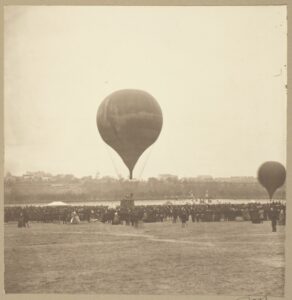Isabelle Eberhardt explored North Africa disguised as a man. The enigmatic Swiss-Russian writer relished Algeria’s underbelly. She seduced men, narrowly escaped assassination, and abused drugs and alcohol. Long after her ravaged body finally broke down in the Sahara, she was championed for living out her dreams, regardless of gender norms.
Eberhardt was born in 1877. At that time, female sexual experimentation was, shall we say, not a thing. This did not deter Eberhardt. Dressed as a man, she shattered traditional gender expectations.
Eberhardt’s stepfather introduced her to boyish habits. Presumably, he did not wish society to treat her as a second-class citizen. He dressed Eberhardt in boy’s clothes and cropped her hair short. Eberhardt came to prefer identifying as a boy.
Identified as a boy but romanticized Arab men
But her upbringing lacked childish adventures. She and her siblings worked long, laborious days on her stepfather’s estate. Eberhardt’s relationship with her stepfather was always strained. Eberhardt dreamed of one day escaping Geneva. She became fascinated with North Africa and the Sahara. She romanticized Arab men.
Through a French-Algerian penpal in the Sahara, Eberhardt learned about Saharan life. She hung on every word, using the information to publish short stories.
She published her first story in 1895 under the pseudonym Nicolas Podolinsky. Infernalia is about a medical student’s physical attraction to a dead woman. Next, she published Vision du Moghreb, a story about North African religious life.
Considering that her information was second-hand, her stories were remarkably detailed. They captured the interest of French-Algerian photographer, Louis David. Eberhardt confided to David that she dreamed of escaping Geneva and he gave Eberhardt the opportunity.
In 1897, Eberhardt and her mother moved to Algeria. David welcomed Eberhardt into his home.
Disguise and vice
In Algeria, Eberhardt assumed a new identity: Si Mahmoud Saadi. She dressed, acted, and wrote as an Arab man. Wasting no time, she wound her way through darkened dens, drinking with sailors, smoking hashish, and seducing men. Quickly, her relationship with David soured.

Isabelle Eberhardt led a double life. As Si Mahmoud Saadi, she dressed and acted like a man. Photo: Women in History
Writing remained an important part of her life. She penned the first draft of her novel, Trimardeur. Then Yasmina, a story about a young Bedouin woman who falls in love with a French officer. But she blew the little money she made through writing on hashish and alcohol.
In 1897, Eberhardt’s mother died. Overcome with grief, she claimed she too wanted to die. When her stepfather arrived for the funeral service, he coldly suggested that Eberhardt do just that.
The event irreparably severed Eberhardt’s family. One of her brothers committed suicide. Augustin, her closest brother, had been estranged from her in recent years. Her stepfather banished her sister after she married a suitor that the family didn’t approve of. Finally, her stepfather died before he could relocate to Algeria. Eberhardt was now free from family constraints and pursued life as she pleased.
Relentlessly, she roamed the Sahara. Her addiction to drugs and alcohol worsened. Consequences didn’t concern her.
Turns to spirituality
Fair-skinned with a slim physique, Eberhardt’s shaved hair and boyish clothes were not enough to fool most people, and European settlers shunned her for mingling with Arabs. Eberhardt was an outcast.
Already feeling alienated, she found solace in spirituality and religion. She sought out the Qadri religious sect, an order combining Islamic mysticism with pre-Islamic beliefs. The leaders granted her membership, recognizing the depth of her interest in Islam. For Eberhardt, the sect provided a sense of community but aroused further suspicion from the French administration. They already thought she was a spy, sent by the English to foment anti-French sentiment in the region.
In early 1900, Eberhardt met a young Algerian officer, Slimene Ehnni. She fell hopelessly in love. He was the first suitor she felt comfortable enough with to resume a feminine role.
Together, the couple traversed Algeria. Their partnership furthered speculation that Eberhardt was working undercover. The following year, Ehnni received a new posting. It was a deliberate attempt to separate the couple. For Eberhardt, more trouble was around the corner.
Near-assassination
While Eberhardt was with the Qadri, a member of a rival sect burst into the courtyard wielding a saber. The assassin’s saber blow was aimed at her head, but a wire clothesline deflected the blade, narrowly saving her life. Instead, the blow almost completely severed her arm.
Eberhardt believed the attack had been the work of the French administration, which had long despised her. The government sentenced her attacker, Abdallah Ben Mohammed, to a life of hard labor. But they ordered Eberhardt to leave Algeria. As a foreigner, she had no choice but to follow orders.
Eberhardt fled to Marseilles and Ehnni joined shortly after. There, they married in Muslim and civil ceremonies. The marriage entitled her to French citizenship.
Believing God had spared her life for a greater purpose, Eberhardt renewed her spirituality. The event also restored her confidence in her writing. A diary entry read: “Before, I had to wait sometimes for months for the right moods to write. Now I can write more or less whenever I want.”
Soon after the attack, an Algerian newspaper invited Eberhardt to contribute as a war correspondent. They sent Eberhardt to cover clashes between Berber tribes and French forces on the Morocco-Algeria border. Here, she met French officer Hubert Lyautey.
Becomes a spy
Once again living as Saadi, she and Lyautey became close friends and confidants. Eberhardt had been anti-colonial, but Lyautey swayed her. She believed that his diplomatic focus might be good for the region and acted as an intermediary between him and the locals. She even carried out intelligence missions for him.
But Eberhardt’s lifestyle was catching up with her. At just 27, she had already lost all her teeth. She was riddled with health issues, permanently pained from her wounded arm, and had contracted malaria. Years of substance abuse had taken a toll. Time was running out. Pain and death didn’t worry her. Her spirituality instilled the belief that pain was not suffering.
In 1904, Eberhardt rented a small house in the Algerian village of Ain Sefra. She asked her husband, whom she had not seen for months, to join her. The day after he arrived, a flash flood swept down from the mountains and demolished their house. The flood swept her husband away, although he survived. Eberhardt was not so lucky. Her body was found crushed beneath the ruins of their home.
Eberhardt’s lifestyle had swayed between vice and spirituality, between hedonism and journalism. After she died, her manuscripts inspired plays, films, an opera, and the New York musical, The Nomad.
Her celebrity comes not from her stories, but from her uncompromising lifestyle. She experienced parts of North Africa rarely witnessed by European women. She challenged the social norms of sexual expression. For Eberhardt, gender created no barrier that could not be overcome.






